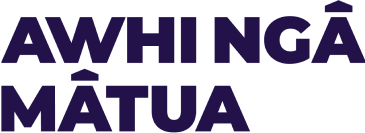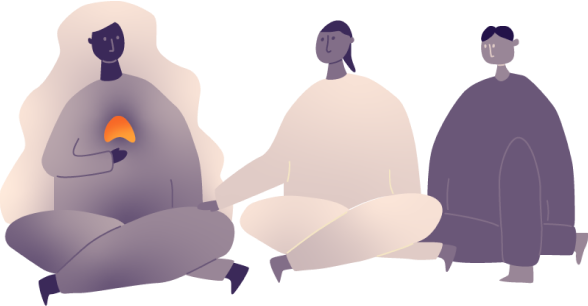Awhi is still in development, we'd love your feedback and suggestions. Let us know.
Help! My local school does not want to enrol my disabled child - What can I do?
Too many families in Aotearoa find local schools unwilling to enrol their disabled child – frequently schools say they have inadequate resources.
All students are legally entitled to free full-time education at public schools. Any denial of this is discrimination and goes against New Zealand’s binding and legal obligations to include all learners in mainstream schools.
This includes disabled learners - Section 34 of the Education and Training Act (2020) specifically states - “Students who have special educational needs (whether because of disability or otherwise) have the same rights to enrol and receive education at state schools as those people who do not.”
But while you may have the backing of law behind you, the delivery of inclusive education in NZ, decades after it was first introduced, remains fragmented, inconsistent, and under-funded.
Previous Minister of Education Jan Tinetti recently likened inclusive education to a leaky roof: “There is never really an endpoint …we put a bucket under the area where it’s leaking, but then another leak springs and we put a bucket under there ...but what we really need to do is take a look at the roof . . .let’s ask ourselves what it is that we can do to affect the system as a whole”.
That said, the Ministry of Education’s (MoE) main website clearly outlines what is expected of schools in terms of providing inclusive education.
This includes:
- What is meant by inclusive education in the New Zealand environment.
- The legal and binding obligations to include all learners.
- How the Education Review Office (ERO) evaluates how well schools include students with high needs.
- The roles of boards and governance in building inclusive schools.
There are some resources which may help to support inclusive practices in schools. These include the dedicated Inclusive Education website Te Kete Iparangi and the Inclusive Practice self-review toolkit. There are also guides available for Individual Education plans.
Some of these resources, such as Te Kete Iparangi’s online learning modules, are designed to help schools create more inclusive learning environments. They are relatively new, and reflect the on-going push to ‘do better’ where inclusive education is concerned.
The IHC Inclusive Education Survey 2022 of over 600 families and educational professionals showed the education sector is still falling short of expectations in delivering education to disabled students.
The main findings included:
- Almost all respondents said that funding for disabled students does not deliver what they need to access education.
- Respondents lacked confidence that the latest MoE Highest Needs Review would have a significant impact in resolving problems.
- Families felt that teacher capacity to teach diverse learners had reduced over the last three years.
- More than a third of the families said that their children were regularly sent home for part of the school day and were also unable to join in on non-school activities.
- 86% of the professionals reported increased difficulties with the Ongoing Resourcing Scheme (ORS) and accessing the specialist support disabled students needed to participate and achieve.
Two positive trends were also identified:
- There had been a decline in the number of schools declining enrolments.
- Less disabled students were being stood down or suspended when compared to the two previous IHC Inclusive Education surveys in 2019 and 2014.
Trish Grant at the Inclusive Education Action Group has the following advice for parents who are told their local school has insufficient resources to support their disabled child.
“Your best option is to partner up with your school and jointly make sure the Ministry of Education lives up to its obligations and provides the necessary support.”
And if you still feel the school is not doing enough, she advises contacting an advocacy group to enlist their help – for example the NZ Down Association, Autism NZ, Youth Law.
All children should feel welcome and included at their local school – with access to the support they need to be an engaged and enthusiastic learner. It is unacceptable that for some children this isn’t the case and IHC NZ has taken legal action with the Human Rights Review Tribunal.
It may be hard getting the education for your child that the New Zealand government has promised to deliver, but by remaining consistent in ensuring that your child’s right to education is fulfilled, you will be part of creating the inclusive education environment all children deserve.
Disabled children, like all other children, want the chance to live ordinary lives, and access to mainstream education is key to that desire and their legal and human right.
If you would like to know more about Inclusive Education, the following articles by Awhi Nga Matua and IHC Library may be of interest to you.
Resources
Belonging :
Belonging :
"In Belonging: Rethinking Inclusive Practices to Support Well-Being...
"In Belonging: Rethinking...
Intellectual disabilities :
Intellectual disabilities :
This leading textbook (previously known as Learning Disabilities)...
This leading textbook...
Learning disabilities :
Learning disabilities :
"This fifth edition has been fully revised and updated and is...
"This fifth edition has...
Learning better together :
Learning better together :
"For the first time in New Zealand, "Learning Better Together" puts...
"For the first time in New...
Working with Māori children with special education needs :
Working with Māori children with special...
"Emphasises the importance of learning from the past and listening...
"Emphasises the importance...
Working with Māori Children with Special Education Needs :
Working with Māori Children with Special...
Who are Māori children with special education needs? Why would...
Who are Māori children with...
Belonging for people with profound intellectual and multiple disabilities:
Belonging for people with profound...
"This book pushes the boundaries in the way we approach people with...
"This book pushes the...
Children's rights from international educational perspectives :
Children's rights from international...
This book critically examines contemporary educational practices...
This book critically...
Inclusive education :
Inclusive education :
Examines some of the key influences behind the moves towards...
Examines some of the key...
Every child included
Every child included
Aims to track the move to creating a more flexible continuum of...
Aims to track the move to...
The journey to a more inclusive education system
The journey to a more inclusive education...
Explains what an inclusive education system looks like and the...
Explains what an inclusive...
He Whakaaro :
He Whakaaro :
New Zealand is committed to providing an inclusive education...
New Zealand is committed to...
The long and bumpy road to inclusive education
The long and bumpy road to inclusive...
"It has been 30 years since children with disabilities were given...
"It has been 30 years since...
Success in School :
Success in School :
Describes the two-day Success in School Course run by the Auckland...
Describes the two-day...
School friendships
School friendships
Looks at how the community at Pillans Point School have embraced...
Looks at how the community...
Teacher aides an integral part of learning teams
Teacher aides an integral part of learning...
Reports on research from the Education Review Office commissioned...
Reports on research from...
Unlocking the superpowers of neurodiverse learners
Unlocking the superpowers of neurodiverse...
Talks to members of a group of students who are part of the Young...
Talks to members of a group...
Te Kete Ipurangi, Inclusive Education TKI
Te Kete Ipurangi, Inclusive Education TKI
Te Kete Ipurangi – the online knowledge basket – is New Zealand’s...
Te Kete Ipurangi – the...
Inclusive Education Action Group
Inclusive Education Action Group
"The Inclusive Education Action Group (IEAG) advocates for change...
"The Inclusive Education...
Ministry of Education, Inclusive Education
Ministry of Education, Inclusive Education
Find out about inclusive education in New Zealand schools,...
Find out about inclusive...
NZ Curriculum Online, Inclusive Education
NZ Curriculum Online, Inclusive Education
Practical guidance for teachers and leaders to help recognise, plan...
Practical guidance for...
Education Review Office
Education Review Office
"Receiving a quality education, from early childhood education...
"Receiving a quality...
Being You – Roadtrip Nation
Being You – Roadtrip Nation
"1 in 5 individuals in the U.S. struggles with math, writing,...
"1 in 5 individuals in the...
All is for All
All is for All
Pieces on the lived experiences of models working for the talent...
Pieces on the lived...
NZ Down Syndrome Association
NZ Down Syndrome Association
"The New Zealand Down Syndrome Association (NZSDA) has set itself...
"The New Zealand Down...
Autism NZ
Autism NZ
"Autism New Zealand is here to provide services and support,...
"Autism New Zealand is here...
Youth Law
Youth Law
"YouthLaw Aotearoa is a free community law centre for children and...
"YouthLaw Aotearoa is a...

Resources for kids
Of course you can! =
Of course you can! =
Jeremy, a young boy who uses a wheelchair, is nervous about...
Jeremy, a young boy who...
This is me /
This is me /
Meet George and his friends! This is me. I am George. My eyes are...
Meet George and his...
My friend Sam :
My friend Sam :
Points out that autism is not easy for anyone to understand so how...
Points out that autism is...
Quinn at school :
Quinn at school :
"Early diagnosis and early intervention are both important factors...
"Early diagnosis and early...
I don't like reading /
I don't like reading /
"Meet Harry, Harry likes to play football, climb trees, and hang...
"Meet Harry, Harry likes to...
The survival guide for kids with LD* :
The survival guide for kids with LD* :
"Kids with LD can learn--they just learn differently. Young people...
"Kids with LD can...
Finding my voice.
Finding my voice.
A two-colour graphic novel about speaking-up and standing out when...
A two-colour graphic novel...
Accept and value each person /
Accept and value each person /
"The world is becoming more diverse, and so are the daily lives of...
"The world is becoming more...
You are enough :
You are enough :
"It can be hard to be different--whether because of how you look,...
"It can be hard to be...
Janine /
Janine /
"Janine is one of a kind. She focuses on the positive while...
"Janine is one of a kind....
.jpg&w=128&q=75)
Meryl Richards
I’m Meryl Richards. What a pleasure it’s been to join the Awhi team. I get to spend my days researching information that supports me as a parent, and sometimes challenges me to rethink what I thought I knew. My hope is that it will be useful to you too. I live in Kapiti with my partner and two teenage boys, and spend as much time as possible in the surrounding bush and at the beach.
Was this resource helpful to you?


The Awhi Ngā Mātua team would like to thank Takai, the IHC Foundation and the Dines Family Charitable Trust for their generous contributions to our work. A huge thank you also to the IHC Programmes team, in particular the IHC Library which has worked so hard to make their remarkable collection available to us.




.jpg&w=3840&q=75)




